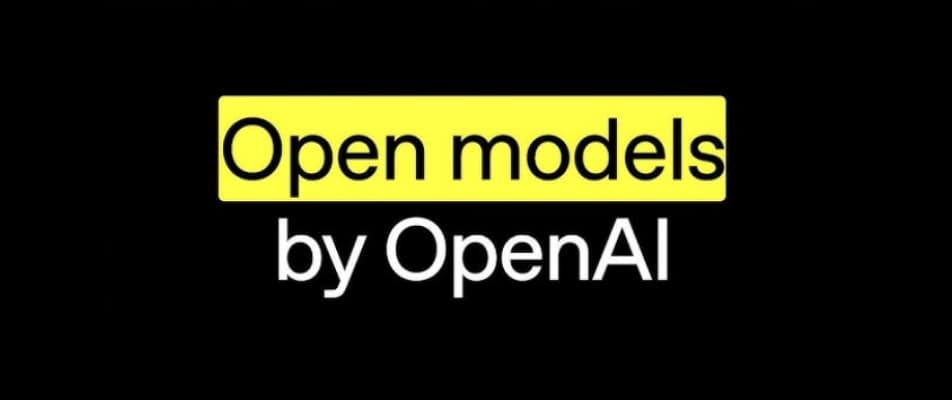
How Open‑Source OpenAI Models Empower Web Development 🔥
🚀 Introduction
OpenAI has made a major leap forward by introducing open‑weight and open‑source AI models like gpt‑oss‑120b and gpt‑oss‑20b. This shift marks a significant turning point in how developers integrate AI—offering freedom, transparency, and power directly into their workflow.
These models, released under the Apache 2.0 license, enable developers to run powerful AI locally, customize it fully, and build intelligent assistants into web apps—while keeping data private and costs low.
💡 What Is an Open‑Source OpenAI Model?
Open-source OpenAI models combine transparent licensing with cutting-edge capabilities. They empower developers with total flexibility and control.
-
Open‑weight models: These are AI models whose weights are publicly available. Developers can download, modify, and fine-tune them—making them ideal for private, secure, and customizable AI implementations.
-
Assistants API + OpenAssistantGPT: Built on OpenAI’s Assistants API, OpenAssistantGPT is a platform that helps developers create AI-powered assistants using open-source OpenAI models. It simplifies building intelligent, helpful interfaces for websites and applications.
🛠️ How These Models Help Web Developers
1. 🔧 Rapid Prototyping & Integration
Open-source models allow developers to build intelligent assistants quickly by ingesting custom data—whether from crawled docs, uploaded files, or APIs. Platforms like OpenAssistantGPT streamline this process with built-in tools and UI components.
2. 💻 AI‑Powered Code Assistance
OpenAI’s open-weight models (and tools like Codex) enable developers to:
- Generate code from natural language
- Test and validate logic
- Run automated commands
- Even review or suggest pull requests
This results in faster and more efficient web development workflows.
3. 🤖 Content Automation & Support
Web developers can use open-source models to power assistants that:
- Answer user queries based on documentation
- Reduce support workload through smart automation
- Deliver real-time help on eCommerce or SaaS platforms
No need for third-party AI dependencies.
4. 🔐 Customization & Control
Using open-source models gives developers:
- Full control over model tuning and behavior
- Local hosting for improved privacy and security
- No reliance on closed APIs or external data processing
Perfect for industries that require compliance and control.
5. 💸 Cost Efficiency & Hardware Flexibility
You can run:
- gpt-oss-20b on machines with 16 GB RAM
- gpt-oss-120b with a high-end single GPU
No expensive cloud infrastructure needed. It brings high-level AI to freelancers, startups, and enterprise teams alike.
⚙️ Example: Create a Docs‑Powered AI Assistant
Here’s how web developers can use open-source models to build a support assistant:
- Crawl your docs: Index your public or internal documentation.
- Upload files: Use CSVs, FAQs, and markdown files to provide more training data.
- Customize assistant behavior: Define tone, personality, and prompt structure.
- Embed the assistant: Use iframe, React component, or script embed.
- Add smart actions: Connect APIs for dynamic answers (e.g., order status).
- Deploy and refine: Test queries and improve accuracy over time.
⚠️ All done with zero vendor lock-in or forced cloud dependence.
✅ Benefits at a Glance
| Feature | Why It Matters |
|---|---|
| Speed & Simplicity | Build and launch AI assistants in hours—not weeks. |
| High Flexibility | Customize data, tone, and actions easily. |
| Offline Capability | Run models locally or in your own infrastructure. |
| Cost-Saving | No recurring API fees or cloud usage. |
| Privacy & Security | Keep sensitive data in-house with no third-party sharing. |
🔍 Why This Matters in 2025
With the release of open‑weight models like gpt‑oss‑120b and gpt‑oss‑20b, OpenAI has created a new era of developer freedom. This change gives developers:
- Complete ownership over model behavior and usage
- Freedom from rate limits, licensing fees, or API tokens
- Transparent control of how and where their assistant works
Combined with tools like OpenAssistantGPT, this allows even solo developers to ship production-ready AI assistants with little effort.
🎯 Conclusion
Open-source AI models from OpenAI unlock unprecedented opportunities for web developers. They enable the creation of intelligent assistants that are:
- Fast to build
- Private by design
- Affordable to run
- Fully customizable
Whether you’re automating support, enhancing documentation, or boosting productivity, these models provide the tools you need—without giving up control or paying for every token.
Ready to build with open-source AI? The models are open. The future is yours to create.
Muhammad Hamid Raza
Content Author
Originally published on Dev.to • Content syndicated with permission